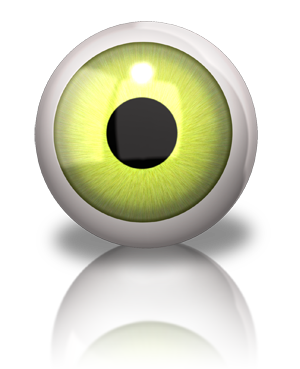

Posted: 2013-12-10 10:27:45

At a recent event organised by the US Government’s Federal Trade Commission in Washington DC, Vint Cerf, one of the founding fathers of the internet, said “I would not go so far as to boldly assert that privacy is dead, but let me tell you that it will be increasingly difficult for us to achieve privacy”.
He was talking not about security threats, or the stealing of data, but about the lazy surrendering of personal details by private citizens on the internet who do so because taking basic precautions is a bit difficult, or prevents them doing stuff.
At this point it might just be worth recapping on what and where the internet is.
Firstly it is a connection framework that lets lots of data access points connect with each other - no matter where they are.
When it first started to become available to the public, it was a bit of an effort to get connected to anything and the devices you could use were limited to desktop PC computers. Now of course access to the internet is everywhere.
So the internet is everywhere and that is because of the now huge range of devices that can connect to the internet. Laptops, tablets and phones are obvious, but other things are less so. For example, Smart TVs access the internet and the concept of the connected device, or the 'internet of things' is bringing the internet to areas of our life that only the most swivel eyed of futurists might have predicted just 10 years ago.
Smart TVs were in the news in the last couple of weeks in the context of spies in the home watching your every move. While this is largely hype it is based on some fact, but the real issue with something like a Smart TV is that it can track what you are watching.
For most, this is highly trivial, but it becomes less so when that information is tied in with other information. There have been recent scares about mobile phone apps leaking personal information, but the scare stories have now largely gone while the apps remain.
The information that many 'free' apps leak can be much more useful than the TV stuff. It can reveal where you live, where you work, the routes you take to work, your friends' names and of (potentially) what you talk about in texts and emails.
The recent European directive making web sites reveal that they use cookies and asking people to agree to the use of them on their machine, has raised awareness of the application of cookies and their uses, but this measure is a classic example of what Vint Cerf is talking about.
For many sites certain functionality is still denied if you refuse to use their cookies and being questioned about this on every site you visit, or every site you visit having already refused the cookies, is incredibly irritating.
The end result is that it is easier to agree to the cookies because it makes your life easier, therefore explicitly agreeing to something that might have been regarded as a bit questionable in the past. Fully legitimising it in other words.
Cookies can be used to track not just what you are up to on one particular a site (a fully legitimate and reasonable function in my view), but also where you go next and what you do there. This additional data capture is very questionable and allows the recording of information that can give a very full view of your life and thought processes.
If someone could (and some people can) marry your TV viewing information with your mobile phone information and then your browsing history, there is no need to do any actual hacking as they will know pretty much everything about your life.
After all, in the UK we live in a free well ordered society with a fully functioning democracy. Well that is true for now. If you wanted to boil a live frog you don't do it by throwing it into boiling water, because it would just jump straight out again. However, you can boil a live frog by adding it to a cool pan of water then heating it up gently.
The steady erosion of personal privacy is a bit like boiling a frog. If I walked up to someone and asked them to give me now all of the personal information they are gradually leaking onto the internet through their various connected devices, I would most likely get a very short answer.
In other words, giving all of this information now to a person standing in front of you, who be can identified and dealt with is unacceptable, but gradually letting a bunch of strangers, who could be located anywhere in the world, have it, is OK?
Does that make any sense? The 'internet of things' as it is being called, means more household and even apparel items will be permanently connected to the internet. The classic example is the fridge tracking its own contents and ordering replenishments as you run out.
Small information, innocuous in itself, but useful to form a more complete picture when married with other information.
Having written a scare story, I have to say that this is not an essay on why you should not use the internet, but more one on which you should use it advisedly and with your eyes wide open.
Saying no to some things is OK and unfortunately it will mean some things you want will have to be denied. The old proverb "always look a gift horse in the mouth", is very much one for our age.